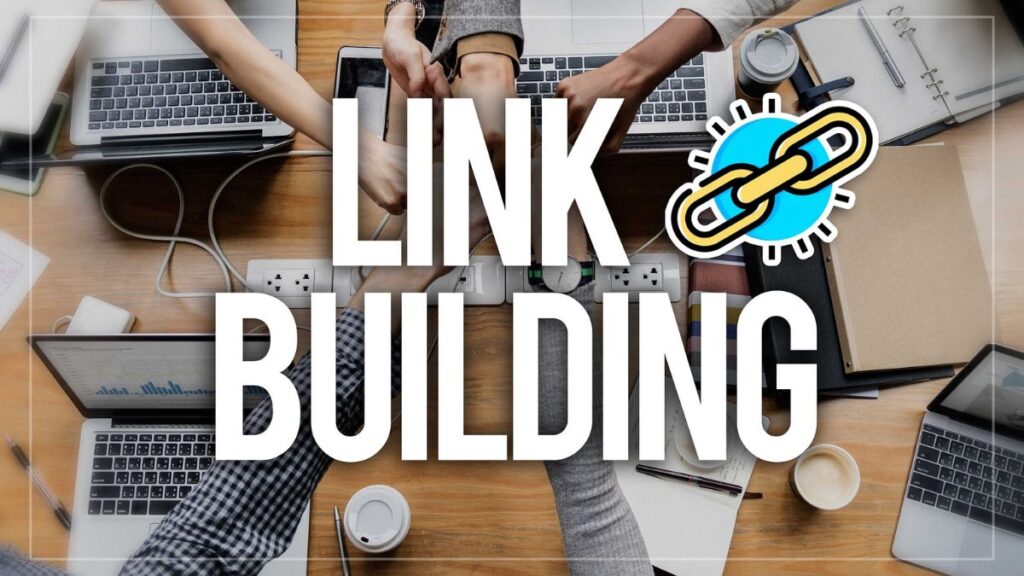Link building is a vital part of any successful SEO strategy. By obtaining high-quality backlinks from reputable websites, your website can rank higher on search engines, leading to increased traffic and, ultimately, more revenue.
In this ultimate guide to link building for SEO, we will explore the different types of links, strategies for effective link building, best practices, and tools to help you succeed.
Types of links
When it comes to link building, you need to be aware of a variety of link types. External links connect to other websites, whereas internal links link to pages on your own website. Backlinks, also known as inbound links, are links that lead to your website from other websites, whereas outbound links lead to other websites from your website.
Additionally, links can be classified as “do-follow” or “no-follow.” Do-follow links allow search engines to follow the link to the target site, while no-follow links do not.
Strategies for Effective Link Building
There are several strategies you can use to obtain high-quality backlinks for your website.
One popular method is guest blogging, which involves writing high-quality content for other websites in exchange for a backlink to your site.
Another strategy is broken link building, which involves finding broken links on other websites and reaching out to the website owner to suggest a replacement link to your website.
The skyscraper technique involves creating high-quality content that is better than what is currently available online, then reaching out to websites that link to inferior content and suggesting they link to your superior content instead.
Infographics can also be effective for link building, as they are often shared and linked to by other websites.
Resource pages are another great way to build links, as they provide a list of helpful resources on a particular topic and can link to your website if your content is relevant.
Finally, you can use HARO (Help A Reporter Out) queries to answer questions from reporters and journalists, which can result in backlinks to your website.
Best Practices for Link Building
When it comes to link building, there are several best practices you should follow to ensure your efforts are effective and ethical.
First and foremost, you should always aim to build links naturally. This means creating high-quality content that is valuable and relevant to your target audience.
Additionally, you should focus on obtaining high-quality links from reputable websites rather than trying to obtain as many links as possible.
Avoid using link schemes or other black hat tactics to try to manipulate search engine rankings, as this can result in penalties or even de-indexing your website.
It’s also essential to monitor the quality of your links regularly, as links from low-quality or spammy websites can harm your rankings.
Finally, it’s important to maintain relevance and context when building links, as links that are not relevant to your content or industry may be seen as spam by search engines.
Tools for Effective Link Building
There are several tools available to help you with your link-building efforts.
Ahrefs is a popular tool that allows you to analyze your website’s backlink profile and track your competitors’ backlinks.
Moz Pro is another useful tool that provides insights into your website’s domain authority and page authority, as well as competitor analysis and keyword research.
Majestic SEO is a tool that provides a detailed analysis of your website’s backlink profile, including information about anchor text and linking domains.
SEMrush is a comprehensive SEO tool that provides insights into keyword rankings, backlinks, and site audit information.
Google Search Console is a free tool provided by Google that allows you to monitor your website’s performance on search engines, including information about backlinks.
Pitchbox is a tool that can help streamline your outreach efforts for link-building campaigns, allowing you to easily find and contact websites that may be interested in linking to your content.
Conclusion
Understanding the various sorts of links, efficient tactics, best practices, and tools available will help you enhance your website’s ranks and increase traffic to your site. Link building is an essential part of any successful SEO plan. As the cornerstone of any effective link-building effort, it’s critical to consistently concentrate on producing high-quality content that adds value for your audience. You may create a solid backlink profile that will help your website for many years by employing ethical and efficient techniques and frequently reviewing your link profile. Long-term SEO success and differentiation in a crowded online market are possible with the correct tools and a dedication to continual link-building activities.





